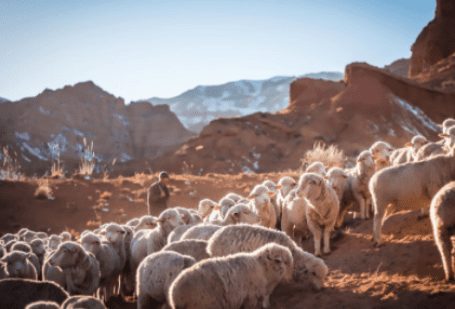Dhaniah Suhana
Input by Ustazah Nuurunnuur
Eid al-Adha, or Hari Raya Haji as it is known in Singapore, marks the end of Hajj, the annual Muslim pilgrimage to Mecca. It has also been dubbed the ‘Festival of Sacrifice’, and is most prominently associated with the sacrifice (korban) of animals. It honours Prophet Ibrahim’s willingness to sacrifice his own son as obedience to God’s command.
According to Prophetic tradition (sunnah), the meat from the sacrificed animal is then divided into three parts, with a third of the share given to the poor and needy.
However, sacrificing in Islam does not only refer to the slaughter of animals, after all. In our daily lives, there are many occasions whereby we make sacrifices such as wealth, energy, time, and even emotional energy.
As human beings we make many sacrifices, whether for our loved ones or for the sake of bettering ourselves.
As students, much time and energy that could have been used for hobbies or socialising, is sacrificed for studying or revision. Working individuals also sacrifice energy and time in order to earn a living and be financially independent.
As parents, many sacrifices, including all the above mentioned, are made for the sake of children – for their schooling, clothing, food, and general upbringing. With the current standard of living, it is sometimes a necessity for both parents to be working, to keep up with expenses. As such, family time is also sacrificed.
Even in our daily interactions, emotional energy is sacrificed to keep the peace when we may not feel like it. Emotional labour is the process of managing one’s feelings and expressions – sometimes this involves suppressing the emotions that we feel. For example, we may take deep breaths when we feel angry with others to reduce our anger, so that we are able to talk to them more calmly and work towards solving the problem.
It was narrated from Ibn ‘Umar that the Messenger of Allah s.a.w. said:
“The believer who mixes with people and bears their harm with patience will have a greater reward than the believer who does not mix with people and does not put up with their harm.”
So, what are our intentions for making these sacrifices? Do we do it for our children? Our self-development? Harmony in the home and workplace?
If we dig a little bit deeper, why should we even have good intentions?
These sacrifices, and acts of goodness, are forms of worship (ibadah). Ultimately then, the sacrifices that we make are for the sake of our Creator.
Narrated Abu Umamah:
“The Prophet s.a.w. said: If anyone loves for Allah’s sake, hates for Allah’s sake, gives for Allah’s sake and withholds for Allah’s sake, he will have perfect faith.”
Thus, in this month of the ‘Festival of Sacrifice’, let us reflect upon the numerous sacrifices that we make in our daily lives. May we keep our intentions and our hearts clear in our daily sacrifices, and take the moment to appreciate them when we see them being done for our sake.
“Say: Lo! My worship and my sacrifice and my living and my dying are for Allah, Lord of the Worlds.”





